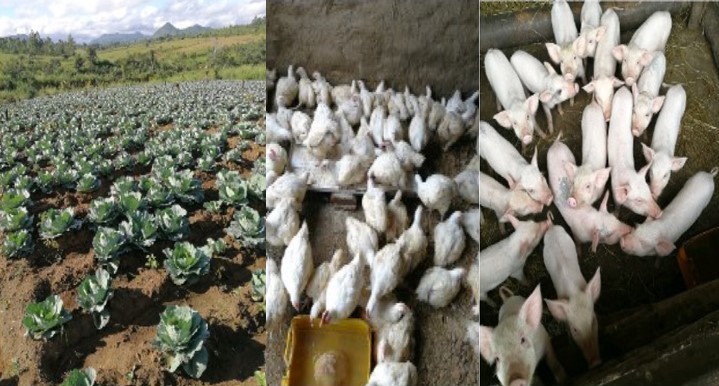
In November 2021 Tsangano Agrifarms, an agribusiness company from Tete province received funding under the auspices of the BCI SUPER credit line implemented by BCI bank in partnership with UNIDO and FUNAE with funding from the Global Environment Facility (GEF). Tsangano Agrifarms is an agricultural production, agro-livestock, and agro-processing company, owner of 101 Hectares of land in the Province of Tete, Tsangano District, in Chinvano locality.
Currently the project is involved in the production, processing and commercialization of quality agricultural products using the most modern technologies and production processes available in the district and at the country level.
Like other agricultural practices in Mozambique, the Tsangano Agrifarms activities depend on the increasingly dwindling water resources from the nearby rivers and rainy seasons to irrigate the farms and cater for poultry and animal husbandry.
“Due to climate change, we do not have abundant water for our own consumption and the irrigation of our fields. We have a nearby river, Rio Nhacuawa that flows only in the rainy season and whose water flow tends to reduce in the months of April-May” –Lamented a Tsangano Agrifarms staff member
In order not to suspend the agricultural activities due to lack of water, the company resorted to pumping water from Liveranje River, which is 1.8km away. However, this involves a lot of expenditures as regards to the acquisition of motor pumps and piping of large capacities of water which makes it more expensive for their level of production.
“Despite the fact the river Liveranje supplies water for longer periods compared to other rivers, it is difficult to practice agriculture on the banks of the river due to the steep slopes. Besides, the river is prone to soil erosion on its banks as a result of intensive agricultural activities”—Informed the Tsangano Agrifarms staff member
With the support of the BCI SUPER credit line, Tsangano Agrifarms intends to use a photovoltaic system to harness the sun's energy to pump water to irrigate crops, power agricultural machinery and equipment, provide light, heat, and ventilation to farm buildings, haylofts, pigsties, livestock and energy for cooling in the horticultural processing factory and freezing in the abattoir chamber. Irrefutably, the operating costs of agriculture and horticulture farms will go down considerably compared to the fossil fuel powered equipment that is currently in use.
“The solar strategy will help us increase efficiency and self-reliance. Solar technology will offer us an opportunity to stabilize our energy costs. Some solar strategies involve an upfront investment, but when those costs are recovered, the energy is free”. Informed the company’s CEO
In addition, the photovoltaic systems also require much less maintenance compared to traditional agricultural energy sources and are very efficient. Greenhouse nurseries, for example, will allow crops to grow all year round. PV panels will also be able to dry crops faster and more consistently compared to other methods.
The Tsangano Agrifarms photovoltaic system with funding from the BCI SUPER credit line will enable crop production throughout the year, maize grinding benefiting 250 families (equivalent to 600-800kg of flour per day), and increase poultry and piggery production from the current 79 to 600.

